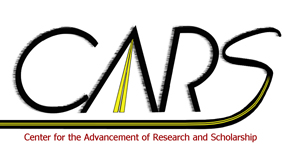Event Title
Poster: Academic Peer Mentoring in University Classrooms: A Win-Win!
Location
Moakley Atrium
Start Time
14-5-2014 4:00 PM
End Time
14-5-2014 5:00 PM
Description
Mentoring plays a substantial role on university campuses; however, academic peer mentoring in the university classroom remains largely unexamined (Colvin & Ashman, 2010). This study explored the experiences of four academic peer mentors and three faculty at a midsized liberal arts university using qualitative methods. First, peer mentors deepened their understanding of constructivist teaching through their mentoring experiences. Second, increased social capital was afforded to the mentors through the enhanced social connections that they developed. Third, the collaborative mentor to faculty relationship further enhanced the mentors’ social capital and academic experience. Presence of academic peer mentors studied here mitigated the hierarchical relationship that existed between professors and students, which is essential to a positive educational experience. Access to academic peer mentors was salient given the student population at the study site, as students reported that they are average or below average in intellectual self-confidence as compared to U.S. peers.
Poster: Academic Peer Mentoring in University Classrooms: A Win-Win!
Moakley Atrium
Mentoring plays a substantial role on university campuses; however, academic peer mentoring in the university classroom remains largely unexamined (Colvin & Ashman, 2010). This study explored the experiences of four academic peer mentors and three faculty at a midsized liberal arts university using qualitative methods. First, peer mentors deepened their understanding of constructivist teaching through their mentoring experiences. Second, increased social capital was afforded to the mentors through the enhanced social connections that they developed. Third, the collaborative mentor to faculty relationship further enhanced the mentors’ social capital and academic experience. Presence of academic peer mentors studied here mitigated the hierarchical relationship that existed between professors and students, which is essential to a positive educational experience. Access to academic peer mentors was salient given the student population at the study site, as students reported that they are average or below average in intellectual self-confidence as compared to U.S. peers.
